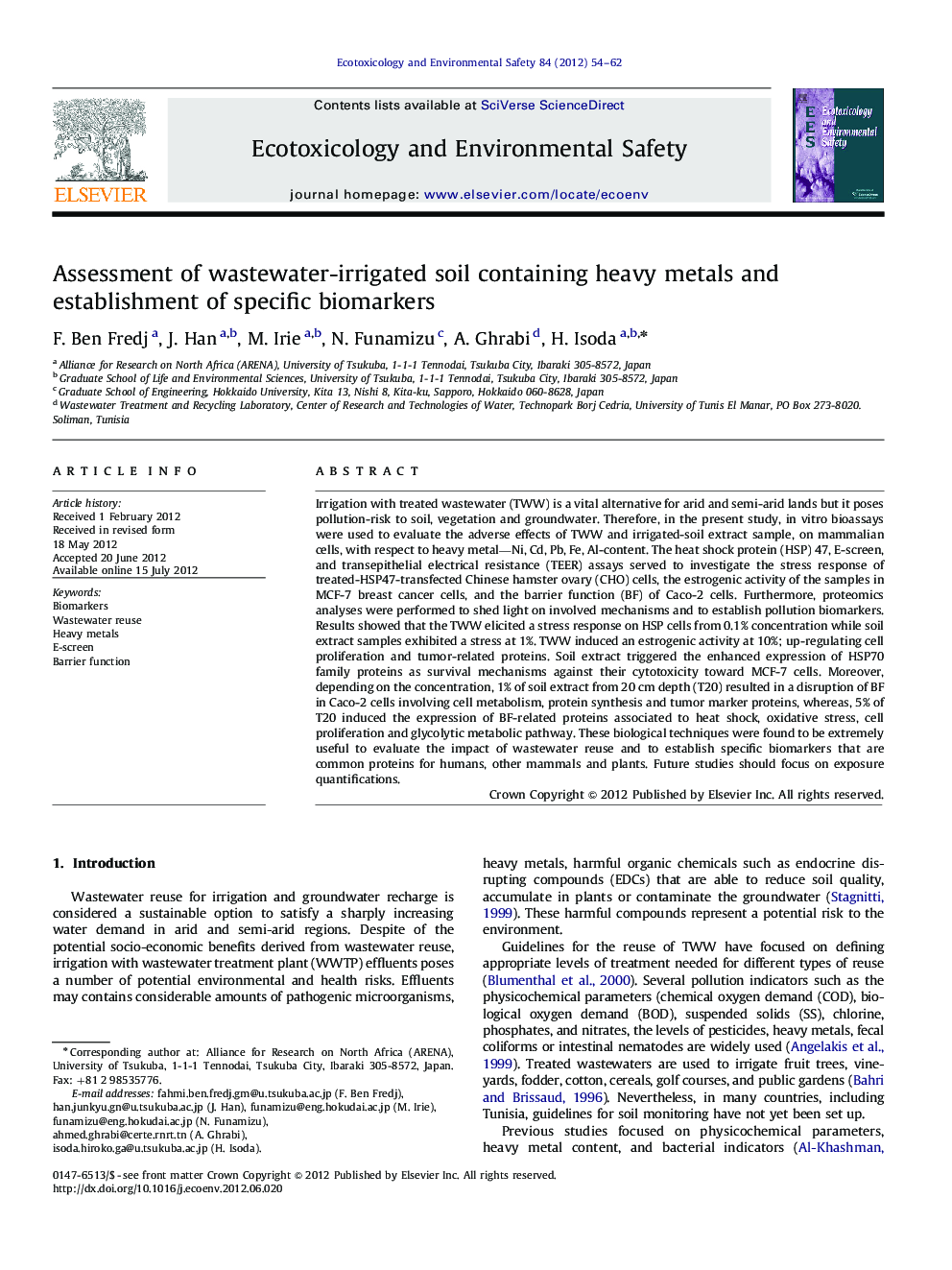| کد مقاله | کد نشریه | سال انتشار | مقاله انگلیسی | نسخه تمام متن |
|---|---|---|---|---|
| 4420724 | 1618979 | 2012 | 9 صفحه PDF | دانلود رایگان |

Irrigation with treated wastewater (TWW) is a vital alternative for arid and semi-arid lands but it poses pollution-risk to soil, vegetation and groundwater. Therefore, in the present study, in vitro bioassays were used to evaluate the adverse effects of TWW and irrigated-soil extract sample, on mammalian cells, with respect to heavy metal—Ni, Cd, Pb, Fe, Al-content. The heat shock protein (HSP) 47, E-screen, and transepithelial electrical resistance (TEER) assays served to investigate the stress response of treated-HSP47-transfected Chinese hamster ovary (CHO) cells, the estrogenic activity of the samples in MCF-7 breast cancer cells, and the barrier function (BF) of Caco-2 cells. Furthermore, proteomics analyses were performed to shed light on involved mechanisms and to establish pollution biomarkers. Results showed that the TWW elicited a stress response on HSP cells from 0.1% concentration while soil extract samples exhibited a stress at 1%. TWW induced an estrogenic activity at 10%; up-regulating cell proliferation and tumor-related proteins. Soil extract triggered the enhanced expression of HSP70 family proteins as survival mechanisms against their cytotoxicity toward MCF-7 cells. Moreover, depending on the concentration, 1% of soil extract from 20 cm depth (T20) resulted in a disruption of BF in Caco-2 cells involving cell metabolism, protein synthesis and tumor marker proteins, whereas, 5% of T20 induced the expression of BF-related proteins associated to heat shock, oxidative stress, cell proliferation and glycolytic metabolic pathway. These biological techniques were found to be extremely useful to evaluate the impact of wastewater reuse and to establish specific biomarkers that are common proteins for humans, other mammals and plants. Future studies should focus on exposure quantifications.
Research highlights
► High Cd levels in TWW and irrigated soil (T20 and T90) induced stress response.
► TWW caused estrogenicity and tumour-related protein expression change.
► The soil exhibited cytotoxicity and triggered HSP 70 family expression.
► Depending on the concentration T20 induced a disruption of TJ or barrier function.
► This approach allowed establishing specific biomarkers of wastewater reuse pollution.
Journal: Ecotoxicology and Environmental Safety - Volume 84, 1 October 2012, Pages 54–62